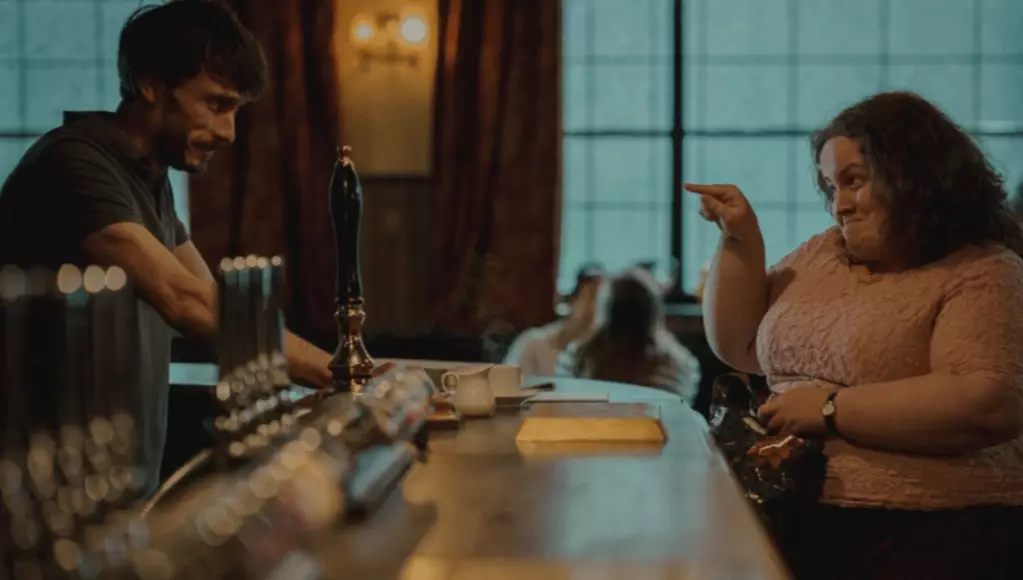In the world of entertainment, the boundary between reality and fiction often blurs, leading to unforeseen consequences for those involved. The recent Emmy victories of Richard Gadd, creator of the Netflix series “Baby Reindeer,” serve as a case in point. While celebrating his accolades for acting, writing, and producing, Gadd now faces serious allegations from Fiona Harvey, who claims that his portrayal of her, stemming from an alleged stalker narrative, has severely impacted her life. This complex situation highlights the potential ramifications of storytelling that crosses ethical lines.
Fiona Harvey has openly shared the distress she has endured since her identification as the person behind the show’s character, Martha, a woman depicted as a stalker. In an interview with the Daily Mail, she described her fear of stepping outside, indicating that her life has been effectively confined to her apartment due to anxiety and panic attacks. Harvey’s emotional suffering—characterized by insomnia, nightmares, and physical ailments—paints a harrowing portrait of the real-world consequences that can arise from fictionalization. The stark disparity between Gadd’s newfound acclaim and her ongoing turmoil illuminates a troubling facet of modern storytelling; the emotional debris left in the wake of an artist’s creative expression can often be overlooked or trivialized.
In May, Harvey initiated a staggering $170 million lawsuit against Netflix, seeking redress for what she deems a monumental case of defamation. She asserts that Gadd’s portrayal of her as Martha, a character with a history of stalking convictions, is not only inaccurate but has also caused her profound distress. Her legal claims include intentional infliction of emotional distress and negligence, underscoring the severity of her situation. The juxtaposition of a celebrated artist against an individual relegated to a life of fear raises ethical questions about artistic license, responsibility, and the magnitude of truth in storytelling.
Gadd maintains that “Baby Reindeer” is a fictionalized account, emphasizing that it should not be construed as a precise depiction of real events. His own court statement acknowledges the narrative liberties taken in recounting the story of his life. However, the presence of a “true story” label invites scrutiny of how much creative license an artist should possess when their work significantly affects real individuals. Netflix CEO Ted Sarandos has publicly supported Gadd, affirming his pride in the project and defending the portrayal as a dramatized version of Gadd’s experiences. This defense of creative expression prompts us to consider the ethical obligations of storytellers and whether the cultural merit of a narrative can justify the personal cost to individuals depicted within it.
The current case against Gadd encapsulates the delicate balance between artistic expression and ethical responsibility. As audience members, we often revel in gritty dramas that explore uncomfortable truths; however, these narratives can have tangible consequences for actual people. In a world where stories wield immense power, creators must navigate their roles carefully, acknowledging the potential repercussions of their art on real individuals.
The discourse surrounding the situation also emphasizes the need for greater awareness regarding how stories labeled as “true” can misconstrue and distort personal realities. Should there be stricter regulations regarding the portrayal of living individuals in dramatized formats? Equally important is the question of whether the entertainment industry should emphasize more caution when transforming real-life events into fictional narratives.
The ongoing saga between Richard Gadd and Fiona Harvey serves as a poignant reminder of the interconnectedness of storytelling, fame, and personal accountability. As Gadd continues to bask in the glory of his Emmy wins, Harvey contends with an emotional fallout that may not soon diminish. This case underscores the need for dialogue surrounding the ethical responsibilities of creators and the emotional toll their works can impose on the subjects they depict. It begs the question: In pursuit of artistic expression, how do we safeguard the very real human experiences behind the stories we tell?

